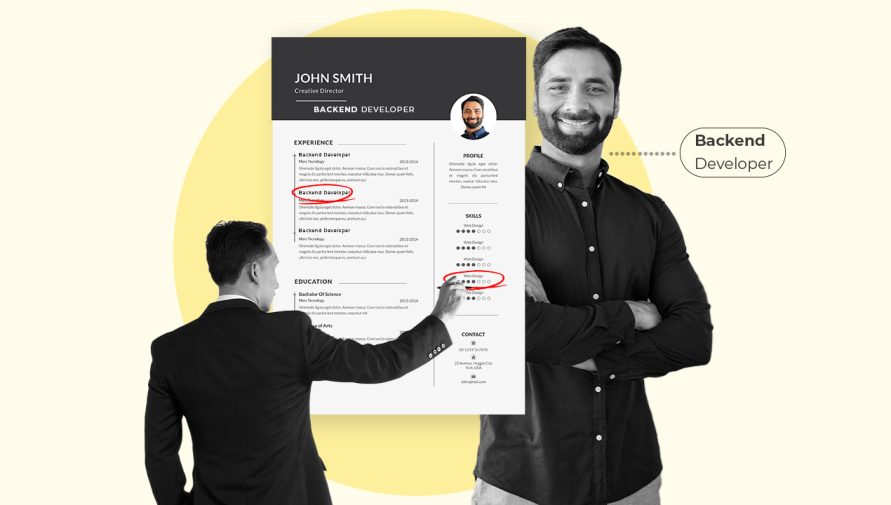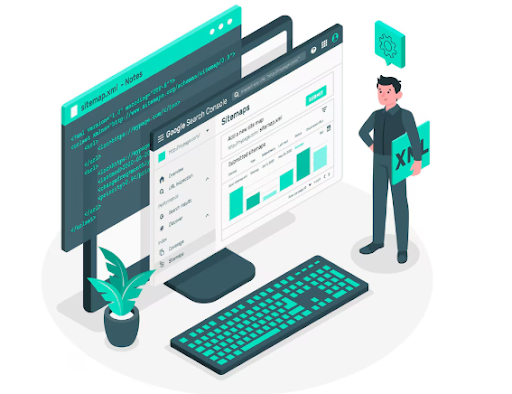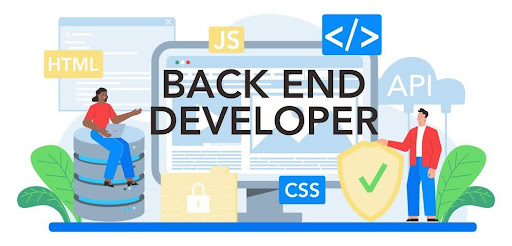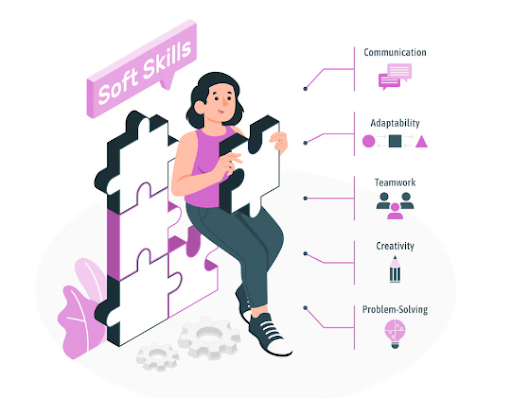Hiring Backend Developers: Key Skills and Qualities to Look For
- Bhavik Suthar
- December 17, 2024
- 6 Minute Read

A backend developer builds web applications by managing server-side operations and databases and ensuring frontend-backend communication.
Choosing the right developer involves evaluating technical skills that align with your project needs. They are responsible for the functionality behind web applications, including coding, database design, implementation, and maintenance.
However, there are many factors that you must consider before you hire backend developers. For instance, a good developer should be able to design systems that can scale and withstand user demand growth.
So, let’s learn how to assess top skills for backend developers!
Key Technical Skills
Evaluate the following technical skills when deciding to hire backend developers:
1. Backend Programming Language Proficiency
Backend developers should be proficient in:
- Java: Java is a popular choice for enterprise applications, financial systems, and large-scale solutions. It is ideal for handling highly trafficked systems and extensive datasets.
- Python: With Python’s readability and flexibility, developers should focus more on solving problems rather than wrestling with complex code structures.
- PHP: PHP is one of the older programming languages that is the foundation for powering most of the web. PHP excels in server-side scripting for dynamic web pages. It has an open-source nature that reduces development costs.
- Ruby: Ruby is for developers who value productivity and simplicity. It allows for quicker project launches, has a clean syntax, and has built-in testing tools that enhance productivity.
- Node.js: Node.js is an excellent choice for real-time applications and event-driven applications. Node.js does very efficient work in asynchronous operations, thus suitable for high concurrency systems.
2. Awareness of Backend Frameworks
Let us check out the most popularly followed Backend frameworks:
- Django (Python): Django is a high-level Python framework with the “batteries included” approach. This allows the developer to create complex applications much quicker using an integrated package and libraries.
- Spring Boot (Java): Spring Boot is a strong spring ecosystem-based framework that simplifies the task of creating production-ready Java applications.
- Ruby on Rails (Ruby): Ruby on Rails is a developer-friendly framework known for following the “Convention over Configuration” principle, which allows developers to write clean and maintainable code.
- Express.js Node.js: Node.js-based Express.js is preferred for modern web application developments due to its flexibility and lightweight form.
3. Database Management
A proficient backend developer should store, retrieve, and efficiently manipulate data:
- Relational Databases: Backend developers should be able to work on structured tables that are used to store data and are considered very reliable and versatile. Databases like MySQL and PostgreSQL are suitable for complex queries and strict data consistency applications.
- NoSQL Databases: NoSQL databases are chosen for modern applications as they have flexibility toward unstructured or semi-structured data. They are quite efficient in handling large amounts of data as well as distributed systems.
- Database Design and Optimization – A good backend developer will be able to design and optimize databases effectively. Other requisites include data structuring for quickness and speed, and improving query performance through appropriate indexing techniques.
4. API Development and Integration

When you hire backend developers, it is essential to assess their skills in API-related work.
- RESTful APIs: REST, or Representational State Transfer, is the most used architectural style for building APIs.
- GraphQL: GraphQL provides greater flexibility and efficiency than REST while allowing clients to ask for just what they need.
- SOAP: Simple Object Access Protocol is a protocol-based solution that guarantees high security and is used in enterprise-level applications.
5. Version Control Systems
Version control systems are part of modern software development. They track the history of changes in clean development history. Backend developer skills must include the know-how of:
- Git: Its distributed model helps to develop independently, sync all changes with the central repository, and experiment with isolated features without affecting the main codebase.
- Mercurial: Mercurial has a clean and intuitive interface. Developers can optimize it for large projects in nature to make the operation faster and more efficient.
- Subversion: Subversion or SVN is a central version control system. All data gets stored in one single server which makes it easy and manageable.
6. Server Management and Deployment
Application developers should understand how to deploy, manage, and optimize servers to maintain the reliable performance of the applications. They should be well-versed with:
- Servers: Web servers Apache and Nginx are integral to distributing content to users. Apache is known for its adaptability and rich documentation, while Nginx helps handle tremendous traffic.
- Cloud Platforms: AWS, Azure, and Google Cloud have revolutionized server management through scalable, on-demand infrastructure. The top skills for backend developers include familiarity with such platforms.
- Containerization: Containerization tools make the process of deploying applications easier by bundling applications. For instance, Docker lets developers create consistent environments for development, testing, and production. Kubernetes orchestrates containers, scaling, and fault tolerance.
7. Data Structures and Algorithms

Once learned, developers can tackle sophisticated problems using algorithms and data structures:
Role in Backend Development: Data structures and algorithms help developers handle vast datasets, design scalable architectures, and optimize resource utilization.
Popular Data Structures: A backend developer needs to be familiar with various data structures, each serving its purpose. Some of them are as follows:
- Arrays and Lists
- Hash Tables/Maps
- Stacks and Queues
- Trees and Graphs
- Heaps
Algorithmic Problem-Solving: Algorithms are the driving force behind efficient backend operations. They enable developers to tackle a wide range of problems, from sorting data to optimizing search functions. Tasks include:
- Sorting and Searching Algorithms
- Dynamic Programming
- Graph Algorithms
Crucial Soft Skills

Although technical skills form the base for any backend developer, the same is true for soft skills.
1. Problem-Solving
Backend development involves dealing with complex problems. Analytical thinking enables developers to reduce complex issues and evaluate possible solutions. Troubleshooting capabilities ensure that backend developers can isolate and fix system problems with much less downtime and a better-quality user experience.
2. Communication Skills
Effective communication is one of the strongest backend developer skills. The better a backend developer can collaborate with their frontend developer, the better the whole user experience will be. Backend developers must be able to explain complicated ideas simply.
3. Time Management and Organization
Backend developers work on so many responsibilities, ranging from debugging code to designing new features. They should know how to balance tasks that require prioritization and effective workflows. On-time delivery is crucial in development cycles for keeping the project going.
4. Agility and Continuous Learning
Backend developers need to learn quickly and adapt to new tools and technologies. From new programming languages to new frameworks and platforms, backend developers should be better positioned to benefit from modern solutions. They should be lifelong learners who look out for opportunities to expand their sets of skills required for backend developers.
Red Flags to Look Out For
Identifying these red flags while hiring remote developers will save time, resources, and potential setbacks:
1. Poor Problem-Solving Skills
A developer who is weak at problem-solving can make progress on a project difficult and may confuse the debugging process. Watch out for candidates who stumble over coding tests or developers who are unable to give systematic solutions to hypothetical problems.
2. Weak Communication Skills
Backend developers should be able to work with front-end developers, explain technical ideas to stakeholders, and write legible documentation. Watch out for any inability to clarify ideas or describe technical solutions.
3. Inability to Work in a Team
Application developers must collaborate with other colleagues, such as designers, project managers, and testers, for the development of integrated applications. A history of conflicts in previous roles or unwillingness to share experiences with teamwork can be a red flag.
Conclusion
If you want to hire backend developers, you must weigh technical and soft backend developer skills. The perfect candidate should solve problems, be a good communicator, and have the ability to perform well as part of a collaborative environment.
More importantly, knowing what makes or breaks any project would require knowledge of important backend technologies, frameworks, and tools.
The hiring process involves finding someone who will gel well with your team culture, be proactive about learning, and not impede your project’s goal.
Frequently Asked Questions
1. What does a backend developer do?
Ans: A backend developer develops web applications’ server-side logic. The job involves working with databases, server logic, and APIs, using server-side logic, debugging, and troubleshooting.
2. Which are the programming languages necessary for backend development?
Ans: Backend developers develop real-time applications using programming languages such as Java, Python, PHP, Ruby, and Node.js.
3. How important is it for backend developers to have expertise and experience with cloud platforms?
Ans: Cloud platform expertise and experience are very important for deploying modern applications. Working with cloud platforms like AWS, Google Cloud, and Azure allows for smooth hosting and integration with built-in services.
4. What are the soft skills that a backend developer must possess?
Ans: A good backend developer must possess problem-solving ability, critical reasoning skills, effective communication, and time management, among other soft skills.









